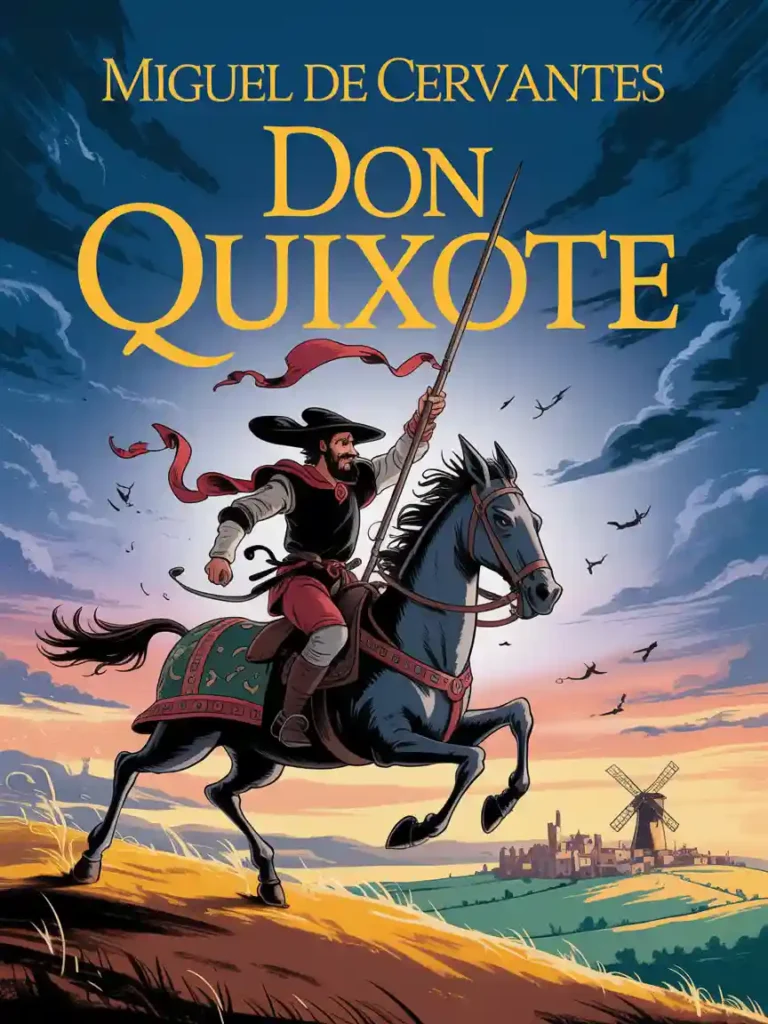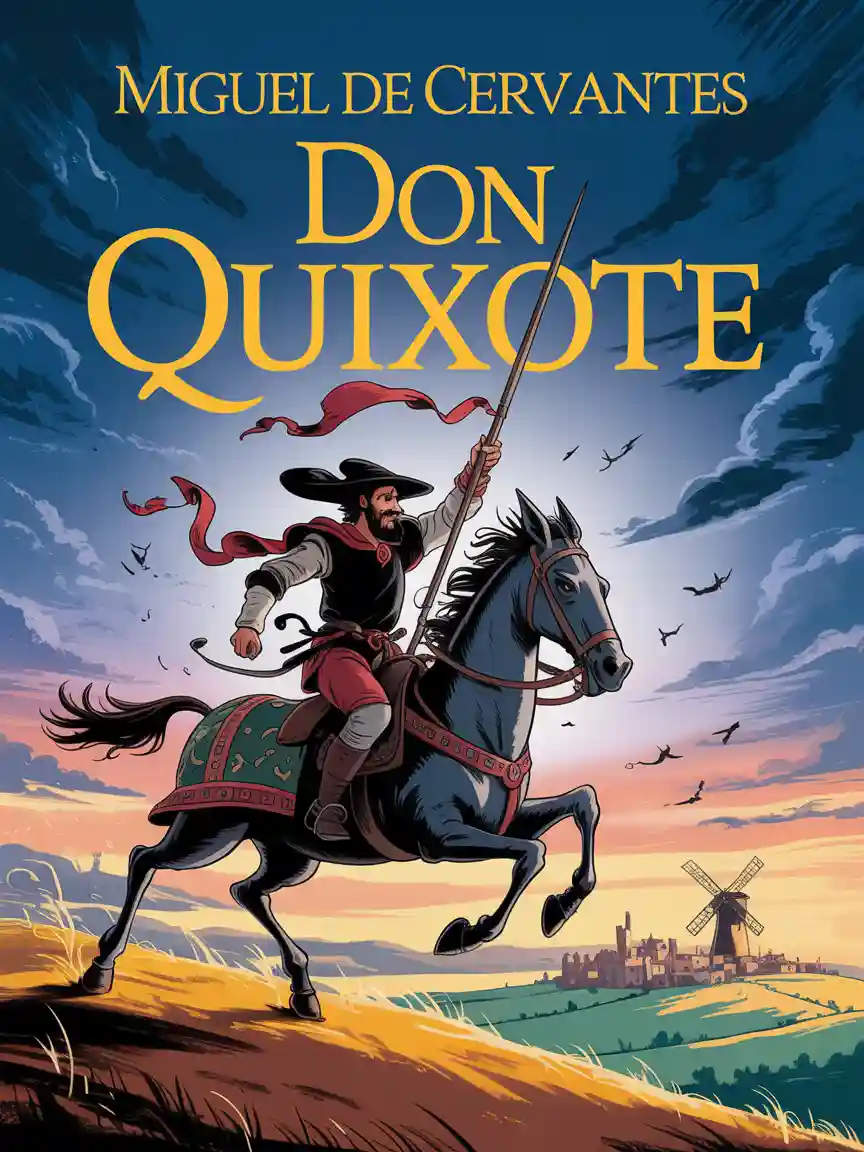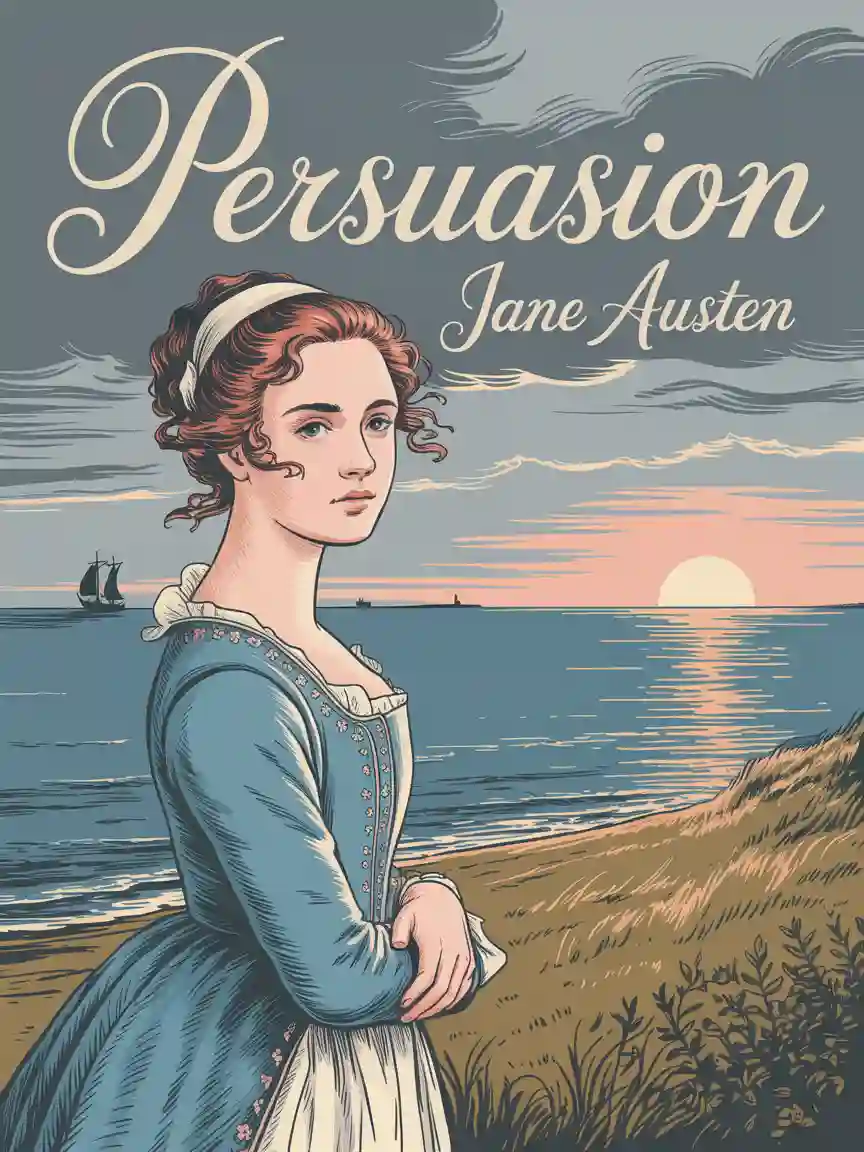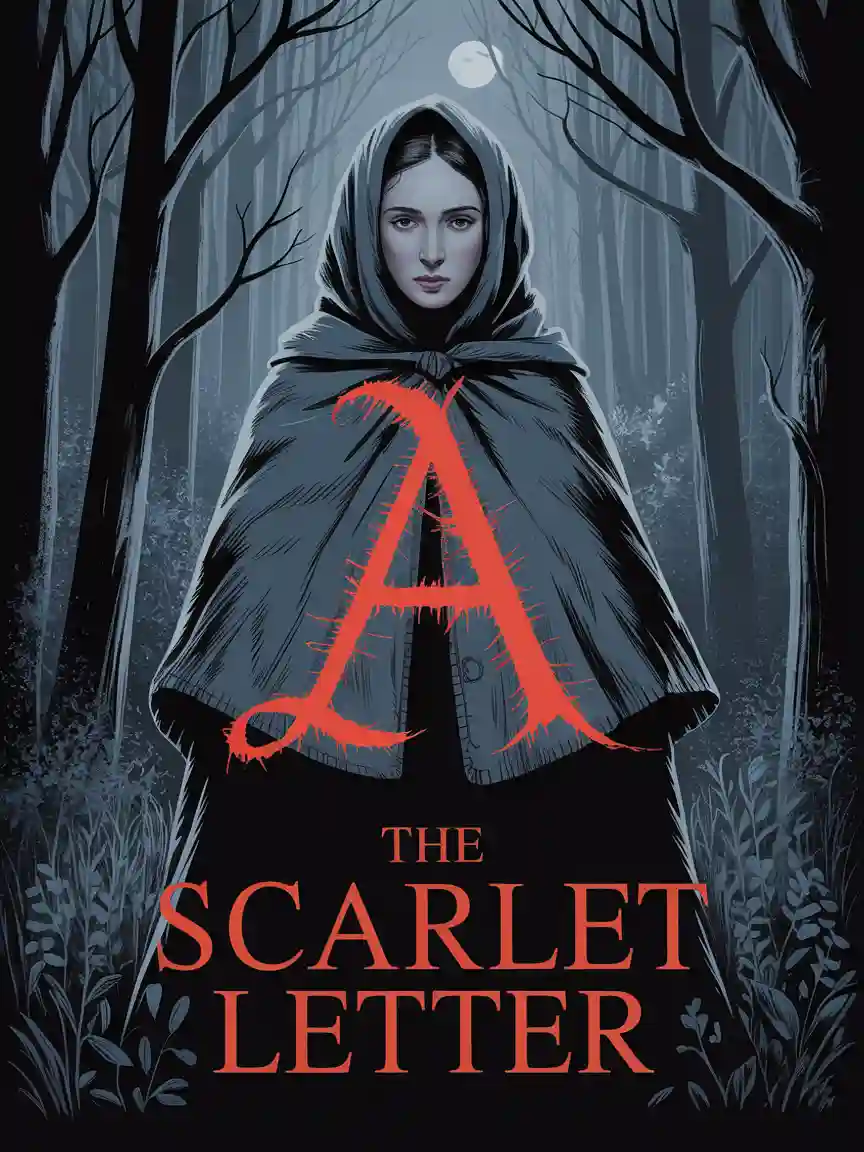CHAPTER 50
WHEREIN IS SET FORTH WHO THE ENCHANTERS AND EXECUTIONERS WERE WHO
FLOGGED THE DUENNA AND PINCHED DON QUIXOTE, AND ALSO WHAT BEFELL THE
PAGE WHO CARRIED THE LETTER TO TERESA PANZA, SANCHO PANZA’S WIFE
Cide Hamete, the painstaking investigator of the minute points of this ve-
racious history, says that when Dona Rodriguez left her own room to go to
Don Quixote’s, another duenna who slept with her observed her, and as all
duennas are fond of prying, listening, and sniffing, she followed her so
silently that the good Rodriguez never perceived it; and as soon as the duen-
na saw her enter Don Quixote’s room, not to fail in a duenna’s invariable
practice of tattling, she hurried off that instant to report to the duchess how
Dona Rodriguez was closeted with Don Quixote. The duchess told the
duke, and asked him to let her and Altisidora go and see what the said duen-
na wanted with Don Quixote. The duke gave them leave, and the pair cau-
tiously and quietly crept to the door of the room and posted themselves so
close to it that they could hear all that was said inside. But when the
duchess heard how the Rodriguez had made public the Aranjuez of her is-
sues she could not restrain herself, nor Altisidora either; and so, filled with
rage and thirsting for vengeance, they burst into the room and tormented
Don Quixote and flogged the duenna in the manner already described; for
indignities offered to their charms and self-esteem mightily provoke the
anger of women and make them eager for revenge. The duchess told the
duke what had happened, and he was much amused by it; and she, in pur-
suance of her design of making merry and diverting herself with Don
Quixote, despatched the page who had played the part of Dulcinea in the
negotiations for her disenchantment (which Sancho Panza in the cares of
government had forgotten all about) to Teresa Panza his wife with her hus-
band’s letter and another from herself, and also a great string of fine coral
beads as a present.
Now the history says this page was very sharp and quick-witted; and ea-
ger to serve his lord and lady he set off very willingly for Sancho’s village.
Before he entered it he observed a number of women washing in a brook,
and asked them if they could tell him whether there lived there a woman of
the name of Teresa Panza, wife of one Sancho Panza, squire to a knight
called Don Quixote of La Mancha. At the question a young girl who was
washing stood up and said, “Teresa Panza is my mother, and that Sancho is
my father, and that knight is our master.”
“Well then, miss,” said the page, “come and show me where your mother
is, for I bring her a letter and a present from your father.”
“That I will with all my heart, senor,” said the girl, who seemed to be
about fourteen, more or less; and leaving the clothes she was washing to
one of her companions, and without putting anything on her head or feet,
for she was bare-legged and had her hair hanging about her, away she
skipped in front of the page’s horse, saying, “Come, your worship, our
house is at the entrance of the town, and my mother is there, sorrowful
enough at not having had any news of my father this ever so long.”
“Well,” said the page, “I am bringing her such good news that she will
have reason to thank God.”
And then, skipping, running, and capering, the girl reached the town, but
before going into the house she called out at the door, “Come out, mother
Teresa, come out, come out; here’s a gentleman with letters and other things
from my good father.” At these words her mother Teresa Panza came out
spinning a bundle of flax, in a grey petticoat (so short was it one would
have fancied “they to her shame had cut it short”), a grey bodice of the same
stuff, and a smock. She was not very old, though plainly past forty, strong,
healthy, vigorous, and sun-dried; and seeing her daughter and the page on
horseback, she exclaimed, “What’s this, child? What gentleman is this?”
“A servant of my lady, Dona Teresa Panza,” replied the page; and suiting
the action to the word he flung himself off his horse, and with great humili-
ty advanced to kneel before the lady Teresa, saying, “Let me kiss your hand,
Senora Dona Teresa, as the lawful and only wife of Senor Don Sancho Pan-
za, rightful governor of the island of Barataria.”
“Ah, senor, get up, do that,” said Teresa; “for I’m not a bit of a court lady,
but only a poor country woman, the daughter of a clodcrusher, and the wife
of a squire-errant and not of any governor at all.”
“You are,” said the page, “the most worthy wife of a most arch-worthy
governor; and as a proof of what I say accept this letter and this present;”
and at the same time he took out of his pocket a string of coral beads with
gold clasps, and placed it on her neck, and said, “This letter is from his lord-
ship the governor, and the other as well as these coral beads from my lady
the duchess, who sends me to your worship.”
Teresa stood lost in astonishment, and her daughter just as much, and the
girl said, “May I die but our master Don Quixote’s at the bottom of this; he
must have given father the government or county he so often promised
him.”
“That is the truth,” said the page; “for it is through Senor Don Quixote
that Senor Sancho is now governor of the island of Barataria, as will be
seen by this letter.”
“Will your worship read it to me, noble sir?” said Teresa; “for though I
can spin I can’t read, not a scrap.”
“Nor I either,” said Sanchica; “but wait a bit, and I’ll go and fetch some
one who can read it, either the curate himself or the bachelor Samson Car-
rasco, and they’ll come gladly to hear any news of my father.”
“There is no need to fetch anybody,” said the page; “for though I can’t
spin I can read, and I’ll read it;” and so he read it through, but as it has been
already given it is not inserted here; and then he took out the other one from
the duchess, which ran as follows:
Friend Teresa,—Your husband Sancho’s good qualities, of heart as well
as of head, induced and compelled me to request my husband the duke to
give him the government of one of his many islands. I am told he governs
like a gerfalcon, of which I am very glad, and my lord the duke, of course,
also; and I am very thankful to heaven that I have not made a mistake in
choosing him for that same government; for I would have Senora Teresa
know that a good governor is hard to find in this world and may God make
me as good as Sancho’s way of governing. Herewith I send you, my dear, a
string of coral beads with gold clasps; I wish they were Oriental pearls; but
“he who gives thee a bone does not wish to see thee dead;” a time will come
when we shall become acquainted and meet one another, but God knows the
future. Commend me to your daughter Sanchica, and tell her from me to
hold herself in readiness, for I mean to make a high match for her when she
least expects it. They tell me there are big acorns in your village; send me a
couple of dozen or so, and I shall value them greatly as coming from your
hand; and write to me at length to assure me of your health and well-being;
and if there be anything you stand in need of, it is but to open your mouth,
and that shall be the measure; and so God keep you.
From this place. Your loving friend, THE DUCHESS.
“Ah, what a good, plain, lowly lady!” said Teresa when she heard the let-
ter; “that I may be buried with ladies of that sort, and not the gentlewomen
we have in this town, that fancy because they are gentlewomen the wind
must not touch them, and go to church with as much airs as if they were
queens, no less, and seem to think they are disgraced if they look at a
farmer’s wife! And see here how this good lady, for all she’s a duchess, calls
me ‘friend,’ and treats me as if I was her equal—and equal may I see her
with the tallest church-tower in La Mancha! And as for the acorns, senor,
I’ll send her ladyship a peck and such big ones that one might come to see
them as a show and a wonder. And now, Sanchica, see that the gentleman is
comfortable; put up his horse, and get some eggs out of the stable, and cut
plenty of bacon, and let’s give him his dinner like a prince; for the good
news he has brought, and his own bonny face deserve it all; and meanwhile
I’ll run out and give the neighbours the news of our good luck, and father
curate, and Master Nicholas the barber, who are and always have been such
friends of thy father’s.”
“That I will, mother,” said Sanchica; “but mind, you must give me half of
that string; for I don’t think my lady the duchess could have been so stupid
as to send it all to you.”
“It is all for thee, my child,” said Teresa; “but let me wear it round my
neck for a few days; for verily it seems to make my heart glad.”
“You will be glad too,” said the page, “when you see the bundle there is
in this portmanteau, for it is a suit of the finest cloth, that the governor only
wore one day out hunting and now sends, all for Senora Sanchica.”
“May he live a thousand years,” said Sanchica, “and the bearer as many,
nay two thousand, if needful.”
With this Teresa hurried out of the house with the letters, and with the
string of beads round her neck, and went along thrumming the letters as if
they were a tambourine, and by chance coming across the curate and Sam-
son Carrasco she began capering and saying, “None of us poor now, faith!
We’ve got a little government! Ay, let the finest fine lady tackle me, and I’ll
give her a setting down!”
“What’s all this, Teresa Panza,” said they; “what madness is this, and
what papers are those?”
“The madness is only this,” said she, “that these are the letters of
duchesses and governors, and these I have on my neck are fine coral beads,
with ave-marias and paternosters of beaten gold, and I am a governess.”
“God help us,” said the curate, “we don’t understand you, Teresa, or know
what you are talking about.”
“There, you may see it yourselves,” said Teresa, and she handed them the
letters.
The curate read them out for Samson Carrasco to hear, and Samson and
he regarded one another with looks of astonishment at what they had read,
and the bachelor asked who had brought the letters. Teresa in reply bade
them come with her to her house and they would see the messenger, a most
elegant youth, who had brought another present which was worth as much
more. The curate took the coral beads from her neck and examined them
again and again, and having satisfied himself as to their fineness he fell to
wondering afresh, and said, “By the gown I wear I don’t know what to say
or think of these letters and presents; on the one hand I can see and feel the
fineness of these coral beads, and on the other I read how a duchess sends to
beg for a couple of dozen of acorns.”
“Square that if you can,” said Carrasco; “well, let’s go and see the mes-
senger, and from him we’ll learn something about this mystery that has
turned up.”
They did so, and Teresa returned with them. They found the page sifting
a little barley for his horse, and Sanchica cutting a rasher of bacon to be
paved with eggs for his dinner. His looks and his handsome apparel pleased
them both greatly; and after they had saluted him courteously, and he them,
Samson begged him to give them his news, as well of Don Quixote as of
Sancho Panza, for, he said, though they had read the letters from Sancho
and her ladyship the duchess, they were still puzzled and could not make
out what was meant by Sancho’s government, and above all of an island,
when all or most of those in the Mediterranean belonged to his Majesty.
To this the page replied, “As to Senor Sancho Panza’s being a governor
there is no doubt whatever; but whether it is an island or not that he gov-
erns, with that I have nothing to do; suffice it that it is a town of more than a
thousand inhabitants; with regard to the acorns I may tell you my lady the
duchess is so unpretending and unassuming that, not to speak of sending to
beg for acorns from a peasant woman, she has been known to send to ask
for the loan of a comb from one of her neighbours; for I would have your
worships know that the ladies of Aragon, though they are just as illustrious,
are not so punctilious and haughty as the Castilian ladies; they treat people
with greater familiarity.”
In the middle of this conversation Sanchica came in with her skirt full of
eggs, and said she to the page, “Tell me, senor, does my father wear trunk-
hose since he has been governor?”
“I have not noticed,” said the page; “but no doubt he wears them.”
“Ah! my God!” said Sanchica, “what a sight it must be to see my father
in tights! Isn’t it odd that ever since I was born I have had a longing to see
my father in trunk-hose?”
“As things go you will see that if you live,” said the page; “by God he is
in the way to take the road with a sunshade if the government only lasts him
two months more.”
The curate and the bachelor could see plainly enough that the page spoke
in a waggish vein; but the fineness of the coral beads, and the hunting suit
that Sancho sent (for Teresa had already shown it to them) did away with
the impression; and they could not help laughing at Sanchica’s wish, and
still more when Teresa said, “Senor curate, look about if there’s anybody
here going to Madrid or Toledo, to buy me a hooped petticoat, a proper
fashionable one of the best quality; for indeed and indeed I must do honour
to my husband’s government as well as I can; nay, if I am put to it and have
to, I’ll go to Court and set a coach like all the world; for she who has a gov-
ernor for her husband may very well have one and keep one.”
“And why not, mother!” said Sanchica; “would to God it were to-day in-
stead of to-morrow, even though they were to say when they saw me seated
in the coach with my mother, ‘See that rubbish, that garlic-stuffed fellow’s
daughter, how she goes stretched at her ease in a coach as if she was a she-
pope!’ But let them tramp through the mud, and let me go in my coach with
my feet off the ground. Bad luck to backbiters all over the world; ‘let me go
warm and the people may laugh.’ Do I say right, mother?”
“To be sure you do, my child,” said Teresa; “and all this good luck, and
even more, my good Sancho foretold me; and thou wilt see, my daughter,
he won’t stop till he has made me a countess; for to make a beginning is
everything in luck; and as I have heard thy good father say many a time (for
besides being thy father he’s the father of proverbs too), ‘When they offer
thee a heifer, run with a halter; when they offer thee a government, take it;
when they would give thee a county, seize it; when they say, “Here, here!”
to thee with something good, swallow it.’ Oh no! go to sleep, and don’t an-
swer the strokes of good fortune and the lucky chances that are knocking at
the door of your house!”
“And what do I care,” added Sanchica, “whether anybody says when he
sees me holding my head up, ‘The dog saw himself in hempen breeches,’
and the rest of it?”
Hearing this the curate said, “I do believe that all this family of the Pan-
zas are born with a sackful of proverbs in their insides, every one of them; I
never saw one of them that does not pour them out at all times and on all
occasions.”
“That is true,” said the page, “for Senor Governor Sancho utters them at
every turn; and though a great many of them are not to the purpose, still
they amuse one, and my lady the duchess and the duke praise them highly.”
“Then you still maintain that all this about Sancho’s government is true,
senor,” said the bachelor, “and that there actually is a duchess who sends
him presents and writes to him? Because we, although we have handled the
present and read the letters, don’t believe it and suspect it to be something in
the line of our fellow-townsman Don Quixote, who fancies that everything
is done by enchantment; and for this reason I am almost ready to say that I’d
like to touch and feel your worship to see whether you are a mere ambas-
sador of the imagination or a man of flesh and blood.”
“All I know, sirs,” replied the page, “is that I am a real ambassador, and
that Senor Sancho Panza is governor as a matter of fact, and that my lord
and lady the duke and duchess can give, and have given him this same gov-
ernment, and that I have heard the said Sancho Panza bears himself very
stoutly therein; whether there be any enchantment in all this or not, it is for
your worships to settle between you; for that’s all I know by the oath I
swear, and that is by the life of my parents whom I have still alive, and love
dearly.”
“It may be so,” said the bachelor; “but dubitat Augustinus.”
“Doubt who will,” said the page; “what I have told you is the truth, and
that will always rise above falsehood as oil above water; if not operibus
credite, et non verbis. Let one of you come with me, and he will see with
his eyes what he does not believe with his ears.”
“It’s for me to make that trip,” said Sanchica; “take me with you, senor,
behind you on your horse; for I’ll go with all my heart to see my father.”
“Governors’ daughters,” said the page, “must not travel along the roads
alone, but accompanied by coaches and litters and a great number of
attendants.”
“By God,” said Sanchica, “I can go just as well mounted on a she-ass as
in a coach; what a dainty lass you must take me for!”
“Hush, girl,” said Teresa; “you don’t know what you’re talking about; the
gentleman is quite right, for ‘as the time so the behaviour;’ when it was San-
cho it was ‘Sancha;’ when it is governor it’s ‘senora;’ I don’t know if I’m
right.”
“Senora Teresa says more than she is aware of,” said the page; “and now
give me something to eat and let me go at once, for I mean to return this
evening.”
“Come and do penance with me,” said the curate at this; “for Senora
Teresa has more will than means to serve so worthy a guest.”
The page refused, but had to consent at last for his own sake; and the cu-
rate took him home with him very gladly, in order to have an opportunity of
questioning him at leisure about Don Quixote and his doings. The bachelor
offered to write the letters in reply for Teresa; but she did not care to let him
mix himself up in her affairs, for she thought him somewhat given to jok-
ing; and so she gave a cake and a couple of eggs to a young acolyte who
was a penman, and he wrote for her two letters, one for her husband and the
other for the duchess, dictated out of her own head, which are not the worst
inserted in this great history, as will be seen farther on.





